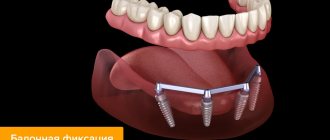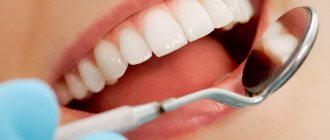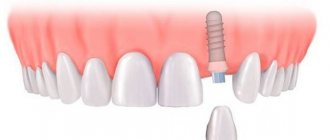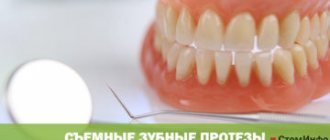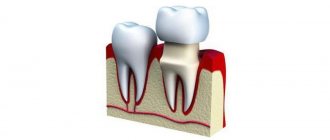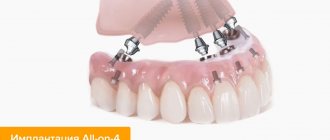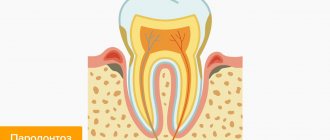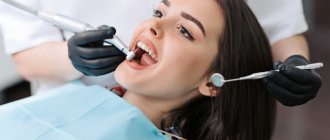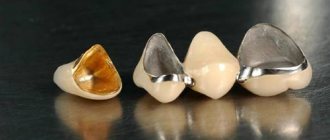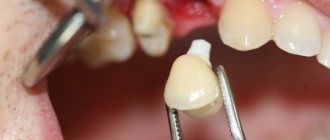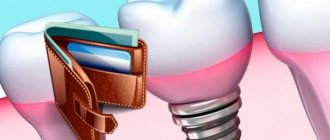328
Dental problems usually appear in older people. According to statistics, most pensioners have gaps in their teeth.
Dental implantation can solve this problem, and therefore allow people to live a full life.
But here many questions arise regarding how the body of an elderly person will withstand such stress, is this operation advisable or is it better to use alternative methods of prosthetics?
Indications and restrictions
Today, the level of development of dental implantation allows the procedure to restore the integrity of the dentition to patients at any age. This means that the age criterion is not a contraindication to the implantation of artificial roots.
In most all cases, people of the older generation turn to an orthopedic dentist for one of the forms of adentia, i.e. with a lack of teeth in a certain area of the dentition or with their complete absence.
In addition to cases of adentia, older people come to the doctor for help in the following cases:
- trauma to deep areas of tooth roots;
- increased tooth wear;
- lack of conditions for the installation of classical prosthetic systems;
- the presence of periodontal problems that require tooth extraction;
- severe destruction of the coronal parts.
The success rate of the operation today is quite high - at least 98%, and the number of restrictions to it against the backdrop of the constant introduction of innovative technologies and new materials is gradually decreasing.
But if these facts apply to older people, then the survival rate will be slightly lower, and the list of contraindications will expand.
The main problems that can prevent dental restoration in older people through implantation, or increase the risk of its unfavorable completion, are:
- Reduced immunity.
- Problems with blood clotting.
- Changing the perception of anesthesia.
- Presence of areas with severely atrophied bone.
- Slowing down tissue regeneration processes.
In addition, implantation will be denied if the patient’s medical history or during his examination reveals:
- mental disorders;
- malignant neoplasms;
- tuberculosis;
- bruxism;
- diabetes;
- heart problems;
- anesthetic intolerance;
- complex endocrine pathologies;
- diseases of the circulatory or hormonal systems.
Important! If these pathologies are present, dentists advise choosing a different method to restore the integrity of the dentition.
In what cases is it justified to install short implants on the upper jaw and the prosthetic structures used?
Visit here to learn more about endoscopic implantation.
This address https://www.vash-dentist.ru/implantatsiya/metodiki/primenimo-li-u-detey.html presents the opinions of experts on dental implantation for children.
Social benefits and privileges for combatants: 2020 list
According to Art. 23.1 of Law No. 5-FZ, veterans are entitled to monthly cash payments (MCP). They are indexed annually, and as of February 1, 2020, the size of the EDV will be 2869.72 rubles. But such an amount is only due to the veteran who refused to provide the social set of services established by Law No. 178-FZ of July 17, 1999.
All the main benefits and privileges of veterans of different categories are prescribed in Law No. 5-FZ of January 12, 1995 “On Veterans”. Article 3 of this regulatory document establishes a list of persons granted the status of combat veteran (hereinafter referred to as VBD). It includes various categories of citizens who participated in armed conflicts both on the territory of Russia and abroad. Among them:
03 Mar 2020 etolaw 1508
Share this post
- Related Posts
- How to Arrange Courtship for an 80-Year-Old Granddaughter
- Application for provision of land for pasture
- Apartment renovation according to the law of the Russian Federation 2020, Irkutsk region
- Does a broken toe fall under compulsory medical insurance?
Preparation activities
Dental implantation is a planned operation that involves a thorough examination of the patient’s health condition. This stage allows you to confirm the need to implant artificial roots , as well as reduce the likelihood and intensity of negative consequences.
Initially, the dentist studies and analyzes in detail general medical information about the patient’s health status, and prescribes additional consultations with highly specialized specialists.
At this stage, a clinical and laboratory examination with tests must also be carried out:
- blood (biochemistry, general, syphilis, forms of viral hepatitis);
- to determine glucose levels and thyroid hormone levels;
- on blood clotting;
- urine.
If certain pathological conditions are present, an elderly person may be asked to perform an allergy test, a glucose tolerance test, and tests for tumor markers.
CT (computed tomography), radiography and orthopantomogram are prescribed. The data from these examinations allows the doctor to get a complete picture of the condition of the dental system, the structure and quality of the jaw bone, as well as select the optimal implant model and accurately calculate the location of its insertion.
After the examination, sanitation of the oral cavity is carried out, during which all dental pathologies discovered during the examination are treated, and the remaining roots and teeth that cannot be restored are removed. If necessary, long-standing fillings are replaced.
Important! The preparatory stage for implantation is very important, since the patient’s further well-being, the degree of risk of complications, as well as the quality and speed of osseointegration of the implant depend on the accuracy and quality of its implementation.
What services are provided free of charge?
Each budget dental clinic undertakes to provide a certain list of services free of charge. However, you can receive free medical care only if you have a medical insurance policy.
Dentistry will provide the following services free of charge under a compulsory insurance policy:
- Consultation with a doctor (examination and prescription of treatment);
- Sanitation of the oral cavity;
- Treatment and prevention of various dental diseases;
- Elimination of inflammatory processes in the oral cavity;
- Tooth extraction;
- Development and installation of prostheses for certain categories of citizens.
In addition, municipal dentistry provides denture repair services to the population.
Methods used
Due to their age, older people always have some health problems. It is for this reason that not every method of implanting artificial roots is suitable for this category of patients.
Faster Methods
Accelerated implantation or express technique allows you to restore the integrity of the dentition in the shortest possible period of time. The use of the technique is justified when reconstructing single-rooted teeth.
There are two accelerated implantation techniques:
- Single-stage with immediate (instant) load .
The essence of the technique comes down to a very rapid restoration of the aesthetics and functionality of the dentofacial apparatus. In most cases, operations are performed without bone grafting, since not only spongy bone is used for implantation. - One-stage - provides for the installation of an implant immediately after tooth extraction (i.e., the structure is placed in its socket).
The entire process takes place in one clinic visit. But all subsequent manipulations (fixing the crown to the structure) take place only after complete healing of the tissue.
As practice shows, for older people, a one-stage technique with instant loading is preferable due to the following advantages:
- no bone tissue augmentation required;
- the rehabilitation period is short;
- chewing function returns in full within a week;
- the invasiveness of the operation is minimal;
- cases of rejection are rare.
In addition, a temporary crown, fixed directly to the implant, has a positive effect on tissue healing, since it provides the necessary load on the tissue and accelerates metabolic processes.
Two-stage technique
The protocol of the two-stage technique involves implantation of the structure in two stages, separated by time. At the first stage, the intraosseous part of the structure is screwed into the gum through an incision. At the second stage (after about 4-6 months), a former, an abutment and an artificial crown are placed.
For this technique, systems are used that consist of two parts:
- intraosseous (artificial root);
- periosteal (abutment).
For older people, two-stage implantation is recommended in the following cases:
- looseness of bone tissue;
- low rate of healing of wound areas;
- a long period of time after tooth loss, which is why it is necessary to form the required volume of gum tissue;
- having problems with your gums.
The main advantage of the two-stage technique is the complete integration of the artificial root. Once screwed in, it is isolated from the environment and pathogenic microorganisms.
Besides:
- the survival rate using this method remains the highest;
- any number of teeth can be restored;
- the atrophic process in bone tissue is prevented;
- high aesthetics of the result;
- sufficient reliability;
- Various types of prostheses can be attached to the implant.
The disadvantages include:
- the duration of the process itself and the period during which the artificial rod fuses with the bone;
- high price (compared to previous methods);
- low aesthetics of the dentition during the period of engraftment of the structure (especially if the frontal group of teeth is restored);
- frequent visits to the clinic in the postoperative period.
Removable prosthetics on implants
For older people, the installation of removable dentures on implants is indicated if they need to restore a large number of dental units with a weak expression of the alveolar ridge.
If the quality and volume of the jawbone is poor, it is impossible to reliably fix implants in it. For this purpose, mini-implants are used - small titanium rods that are quickly installed and take root without any problems.
The implantation operation is performed under local anesthesia in a minimally invasive (transgingival) manner (through a small puncture of the gums), and lasts no more than 50 minutes.
The popularity of the technique is explained by a number of its advantages:
- a minimum number of restrictions;
- no need for surgery to increase the missing volume of jaw bone tissue;
- isolated cases of rejection;
- simple maintenance of the structure;
- short rehabilitation period;
- the ability to load (chew fully) the prosthesis 3-4 hours after surgery.
The main disadvantage of mini-implants is the inability to fully replace your own teeth. Due to their miniature parameters, they are not recommended for replacing one dental unit that regularly experiences increased chewing load.
Also, full-fledged orthopedic structures (crowns or bridges) with a load on the implants themselves are not installed on them. This limitation is due to the fact that with regular high chewing load, the mini-implant can pierce the bone deeply.
Important! The design feature of such artificial roots allows dentures to be performed mainly only on the lower jaw, or to be used as a temporary system.
Main types of removable dentures
Removable partial denture
Equipped with small wire fastenings. With them he clings to whole teeth. Necessity of use - when losing one or two teeth.
Removable complete denture
When manufacturing it, the anatomical structure of the jaws is taken into account. It is used when almost all teeth have been removed. Attached to the gum by suction.
Prosthetics with clasps
It differs from removable dentures in that it has a lightweight design. It is attached to the teeth with hooks or a lock type fastening hidden behind the crown.
Nylon prosthesis
Distinctive features: high flexibility, strength, lightness. There is no need to grind down the tooth surfaces before installing them. They have a beautiful appearance since there are no metal hooks. They can be left in your mouth overnight.
Telescopic prosthesis
It consists of a crown that can be removed and a cap made of metal. A cap is cemented onto the tooth root. The crown sits on it and is held tightly.
Dental systems used
For elderly people, designs with maximum biocompatibility and increased strength are used.
In most cases, one-piece (solid) products are implanted - rods articulated with an abutment.
Based on design features, these products are:
- Basal. Recommended for installation in cases of severe atrophy of the jaw bone. Due to the fact that there is a wide thread at the tip of the rod, it is possible to securely fix the implant in the basal layer of the bone.
- Compression. These products have a compression thread along their entire length, which, when screwed in, compresses the bone, thereby increasing its stability and strength. After 3-5 days, the prosthesis can be attached to them.
- Mini implants . Installed as temporary or additional supports for removable or conditionally removable devices. Screwed into bone tissue without major surgery.
If a decision is made to use permanent implants, then their implantation is carried out according to the immediate loading protocol.
Let's figure out how prosthetics differs from dental implantation and in what cases the techniques cannot be interchangeable.
In this publication you will find detailed information about Bio Gide Absorbent Membrane.
Here https://www.vash-dentist.ru/implantatsiya/metodiki/povrezhdenie-nerva-zuba.html we’ll talk about the causes of nerve damage during tooth implantation.
Where can pensioners get free dental prosthetics?
Most often, tooth loss affects older people. However, not many pensioners can pay for this need. This is because their old age benefits are small and the design and installation of the structure is not cheap.
For persons who have reached retirement age, social prosthetics is available.
If the beneficiary lives in a district where the municipal authorities do not implement such a state program of social support for the population, then the local authorities undertake to cover all costs.
The main disadvantage is that the pensioner cannot choose the medical institution where the service will be provided.
Preferential installation of dentures is carried out only by municipal dentistry, on the basis of a concluded agreement, which contains the conditions, cost, terms and warranty for installed dentures for older people.
Preferential installation of dentures is carried out only by municipal dentistry
Care instructions
The duration of the recovery period and the rate of osseointegration primarily depend on the patient’s attitude to his state of health.
In second place is the correctness of a person’s compliance with medical recommendations regarding the rules of his behavior in the postoperative period:
- On the first day for 15 min. apply cold to the face from the side of the wound area (the procedure must be repeated every 30 minutes).
- For the first 2-3 hours, refrain from eating. Throughout the first week, you should exclude sour, spicy, hard and sticky foods from your diet, and also avoid eating sweet, very hot or cold foods.
- After hygiene procedures and eating, rinse your mouth with anti-inflammatory solutions and antiseptics.
- You can start brushing your teeth from the second day, but do it very carefully. For the procedure, you need to use a soft bristle brush and toothpaste recommended by your doctor.
- For 2-3 weeks, avoid physical activity, visiting baths and saunas, bending, air travel, smoking and drinking alcoholic beverages.
Important! Don't forget to take painkillers and antihistamines. During the entire postoperative period, you should take only medications prescribed by your doctor.
How is the queue implemented?
Individual constituent entities of the Russian Federation determine their own order of queuing for the free installation of prostheses.
As an example:
- Moscow pensioners can install preferential dental structures only if they do not have an official place of employment. In addition, such citizens also stand in a certain queue;
- A fifty percent discount is provided for liquidators of the Chernobyl disaster;
- Free installation of dentures is provided for employees of the Ministry of Internal Affairs. Consultations for such categories of citizens are provided by authorized bodies;
- Residents of St. Petersburg form a queue taking into account certain features. The priority right is given to veterans and disabled people of the Great Patriotic War, followed by incapacitated citizens, and in third place are Labor Veterans. All other pensioners receive the right to installation in the standard queue.
In addition, current legislation establishes a number of situations when citizens can receive free dentures out of turn.
These are:
- If there is an oncological disease, the focus of which is located in the maxillofacial area;
- If teeth are missing as a result of serious injuries;
- If cancer of the digestive tract is detected;
- If you have had surgery on the gastrointestinal system;
- When malignant pathologies of the circulatory system are detected.
Citizens can get free dentures without waiting list
Benefit Rights
Federal legislation establishes a list of people who have benefits or may qualify for discounts in the field of dental services:
- pensioners who, apart from their pension, have no other sources of income;
- disabled people (regardless of disability group);
- labor veterans;
- pensioners of the Ministry of Internal Affairs;
- participants in all kinds of hostilities.
This list may vary depending on the region. In some of them, not only disabled people, but also, for example, family members with a disabled child under 18 years of age, can receive compensation for dental treatment or receive it for free.
Important: if a citizen independently went to the clinic and underwent the necessary procedures, you should not hope for compensation for the funds spent.
To receive benefits in the field of dentistry, the following algorithm of actions is provided:
- Register as a beneficiary.
- Wait your turn.
- After receiving the notification, use the dental prosthetics service.
According to current legislation, if you have a compulsory medical insurance policy, you can receive the following range of dental services free of charge in municipal clinics:
- Medical examination and consultation regarding the need for a particular treatment.
- Dental treatment, including filling.
- Tooth extraction.
- Treatment to prevent or stop inflammation in the mouth.
- Comprehensive professional cleaning.
- Repair or replacement of previously installed prostheses.
Important: dental implantation is not on the list of benefits. Some dental clinics may offer discounts for the disabled and pensioners.
Dental prosthetics for pensioners in dental clinics in St. Petersburg (St. Petersburg)
- Dynasty
- Nevsky Prospekt, building 5
- +7,
4.3 ratings: 7
- Ardent
4.3 ratings: 3
- Doctor dent
4.6 ratings: 5
- My dental
4.6 ratings: 5
- Dentalika
4.6 ratings: 5
- A person
4.3 ratings: 10
- Allegro
4.4 ratings: 5
- Children's dental studio tooth fairy
4.2 ratings: 8
- Ar-med dcloud
4.0 ratings: 7
- Dental clinic of Dr. Kostrubin
3.9 ratings: 9
- Vega-dent
4.1 ratings: 8
- Liana
4.2 ratings: 9
- Smileclinic
4.3 ratings: 7
- Dental clinic gallery of smiles
4.1 ratings: 8
- Dent Alliance
3.6 ratings: 9
Further
Required documents
To exercise your right to free prosthetics, a person needs to prepare a package of documents:
- Applications of the accepted sample.
- Russian Federation passport (with a copy).
- Pensioner ID (with a copy).
- Certificates of income (usually a statement of the amount of the pension).
- A document certifying your place of residence or registration.
- Medical direction confirming the need for prosthetics.
- Compulsory medical insurance policy (with a copy).
Important! If in your region of residence there are any amendments to the Federal Law or the list of beneficiaries has been expanded, then you may need to provide other documents.
Benefits for dental prosthetics for combat veterans
Unfortunately, dental services are among the most expensive medical services. This is especially true for the installation of dentures and cosmetic dental surgeries. In this regard, the Russian Government has launched a social program that allows privileged categories of the population to receive dentures absolutely free of charge.
However, since reimbursement of costs is carried out from the state budget, benefits are provided only on a first-come, first-served basis and in small quantities. Knowledge of the legal requirements will allow you to become a member of the preferential queue and receive long-awaited dental services.
Legislative regulation of the issue
Rights to receive various types of social benefits are fixed in state and regional bills.
Thus, benefits for military veterans, including dental prosthetics, are provided on the basis of the following regulations:
- Federal Law “On Veterans” of 1995;
- information from the Ministry of Labor “On social support for veterans” from 2015;
- Law “On Social Support” of 2006;
- Federal Law “On Social Assistance” of 1999;
- Decree “On the procedure for providing prostheses” of 2008;
- Federal Law “On Social Support Measures” of 2004;
- Resolution of the Constitutional Court of 2020, which stipulates the main features of receiving various types of benefits and allowances.
In certain regions on the territory of the Russian Federation, regional Laws, Resolutions and Orders of Governors are taken as a basis.
Who is eligible for discounted dental prosthetics?
The government of the state has expanded the powers of municipalities in the field of issuing benefits for prosthetics to combatants and other social groups of the population.
For this reason, there is no exhaustive list of applicants for such social assistance for each citizen.
In order to make sure that you can receive free prosthetic services, you will need to contact the social protection center at your place of registration.
The main preferential categories include:
- labor veterans;
- disabled people and WWII veterans;
- pensioners who have completed their working career;
- disabled people due to health conditions, regardless of age and reasons for injury;
- low-income families;
- participants in the Chernobyl accident liquidation program;
- pensioners of law enforcement agencies;
- Heroes of the Russian Federation and the USSR;
- honorary donors;
- VBD - combat veterans.
In addition, dental prosthetics are provided free of charge to military retirees, but only with a minimum of 25 years of service.
What is not included in the free service
If the opportunity arises to take advantage of this item of the social program, you will need to familiarize yourself with the features of providing incentives. In particular, free prosthetics are performed only by doctors from public medical institutions. Private offices do not practice preferentially.
If you want to use expensive materials or precious metals in prosthetics, you will have to pay additionally, since the state provides funding only for cheap devices.
You should also take into account that the set of free services does not include:
- dental implants;
- preventing abrasion;
- treatment of concomitant diseases.
How to use the program
The benefits provided depend on the category of the beneficiary and the circumstances of the assignment of special status. However, regardless of who initiates medical assistance, it is necessary to contact the Social Security Administration at the place of registration.
Support for combat veterans is allowed only at their place of permanent residence and apartment registration address. This is due to the need to eliminate fraudulent activities on the part of citizens.
In order to receive the benefit, the interested person will have to perform the following procedure:
- undergo a medical examination by any dentist in order to obtain an opinion on the need to install dentures;
- collect additional documents;
- contact the local social security department, where a handwritten statement is added to the list of collected papers;
- wait for a decision to be made.
As a rule, it takes about 30 days to review the application. This time is required to eliminate fraud, as well as to verify submitted papers. The applicant is notified by an official letter of a satisfactory or rejected decision.
If the decision is positive, a coupon is issued in the citizen’s name, allowing him to receive free prosthetic services. The validity period of such a coupon depends on the region, but hardly exceeds 6 months, so it is advisable to use the benefit received as soon as possible.
List of required documents
The list of mandatory papers required to initiate dental benefits includes:
- doctor's opinion on the need to install prostheses;
- civil passport, which must have local registration;
- combat veteran certificate;
- SNILS;
- a certificate from the municipality about family composition;
- birth documents of all minor children;
- certificate of income for the previous 3 months.
This list of documents is not exhaustive, since if you have a disability group or other chronic health problems, you can submit other certificates with documents.
Actions in case of refusal
According to the requirements of the law, social security authorities, when deciding to refuse benefits, must formalize the refusal in an official letter indicating the reasons for such a decision. After receiving the notification, a citizen can do one of the following:
- if it is possible to eliminate the shortcomings, then a new package of papers is collected and the application to social security is submitted again;
- if it is impossible to independently eliminate the reason for the refusal, but if there are grounds for free prosthetics, there is every reason to go to court to protect your rights.
Considering the number of people wishing to receive such benefits, there is a waiting list for dental services. Veterans and disabled people of combat and the Great Patriotic War take first place in this queue.
Source: https://sunapse.ru/lgoty-na-protezirovanie-zubov-veteranam-boevyh/
Price issue
Installing implants is an expensive dental service. Thus, the estimated cost of a two-stage technique starts from 40 thousand rubles. for a unit. The price for a one-step technique is about 75 thousand rubles. For a mini-implantation with the installation of a conditionally removable prosthesis, you will have to pay about 100 thousand rubles.
The final price depends on many factors:
- model of the system and the reputation of its manufacturer;
- complexity of the case, i.e. the number of dental elements in need of restoration;
- type and material of temporary (permanent) prosthetic structure;
- the need to perform additional manipulations before implantation (strengthening the gums, sanitation, orthodontic correction, professional cleaning);
- doctor's qualifications;
- status and pricing policy of the clinic.
You will have to pay separately for additional research, taking impressions, and the work of a technician.
In the video, the consultant answers frequently asked questions from pensioners about dental implants.
Where to go for prosthetics in Perm?
For pensioners, there are discounts on prosthetics at municipal dental clinics. However, the choice there is limited - only plate-based removable dentures made of hard plastics. The private dental clinic Sofia-Denta provides discounts for pensioners and the possibility of treatment on credit. The treatment is carried out by orthopedic dentists with extensive experience and experience, the treatment is absolutely painless.
Dentistry Sofia-Denta is located in 3 large districts of the city with convenient travel. Perm, Sh. Kosmonavtov, 120 (next to Goznak) opens around the clock. Perm, Gagarin Boulevard, 103 (next to Startsev) open from 9.00 to 21.00. Perm, Kuibysheva, 125 (next to the city's 24-hour emergency room) operates around the clock.
Reviews
There are no age restrictions for implantation of dental implants, except for childhood and adolescence.
The patient's advanced age is not a reason to refuse surgery. Implantation at this age may not be feasible only due to the person’s poor health.
You can talk about your experience of implantation, or express your opinion on the advisability of it for older people, by leaving a comment on this article.
If you find an error, please select a piece of text and press Ctrl+Enter.
Tags implantation
Did you like the article? stay tuned
Previous article
Effective prevention of all types of malocclusions
Next article
Why can dental implants fall out, and how to prevent it?
Compensation for dental prosthetics for non-working pensioners
If a pensioner is not officially employed, he also has the right to receive partial compensation for the provision of prosthetic services. To obtain compensation, it is necessary to draw up a contract for an employed close relative before paying for medical care. After drawing up the agreement, you should contact the local authorities with a written application for a tax deduction and present all the necessary documents.
After considering the submitted application, employees of the social protection department notify the applicant of their decision. If the beneficiary has received approval for partial reimbursement of prosthetics, he can use the services of a dental clinic, paying for them at his own expense. After the end of the reporting tax period, the amount of compensation for the tax deduction will be transferred to a current account opened in the name of the relative of the pensioner specified in the agreement.
Who cannot count on compensation for treatment
- citizens officially unemployed;
- non-working pensioners (or those pensioners who do not have taxable income or have not had one over the last three years);
- entrepreneurs on the simplified tax system and UTII.
In order for a pensioner to receive a tax deduction, he must be a personal income tax payer. Since the state pension is not taxable, there is nothing to return from.
But there are some exceptions when a pensioner can still receive compensation for dental treatment:
- the pensioner works and receives income subject to personal income tax;
- has income from renting out property (cars, apartments) and pays tax on this income;
- has other taxable income (one-time earnings, etc.);
- sold the property;
- worked and paid taxes no more than three years ago.
In other words, if a pensioner currently has taxable income, or had such income no more than three years ago, then he, on a general basis, applies for tax benefits.
